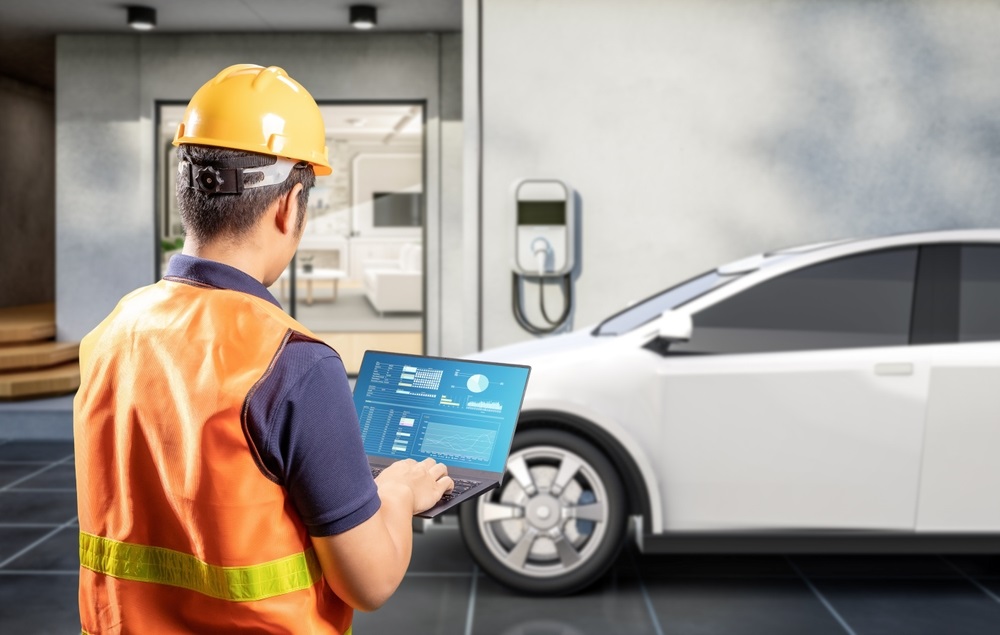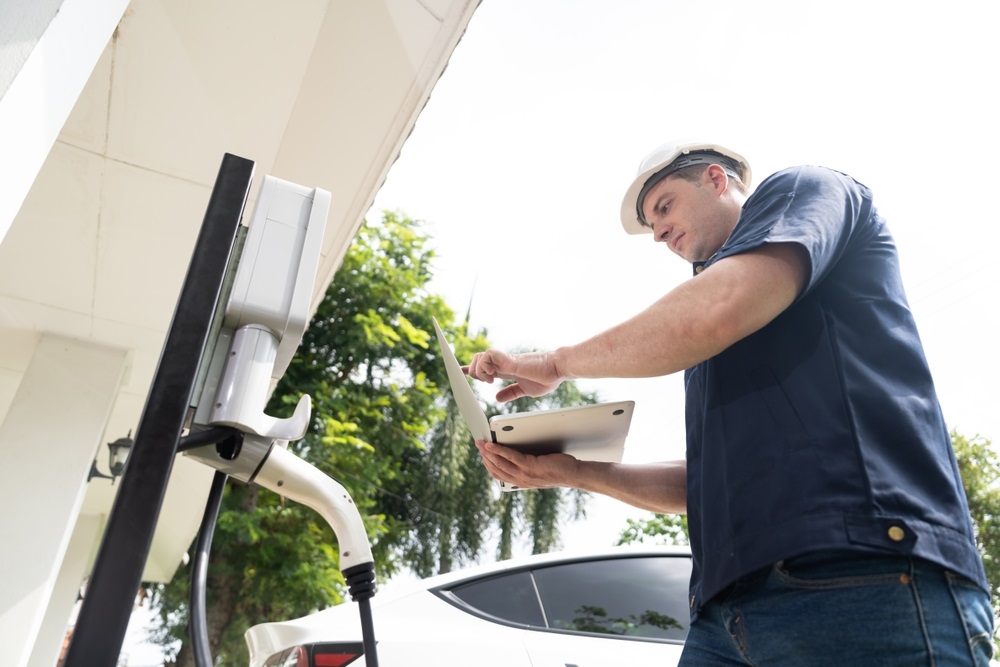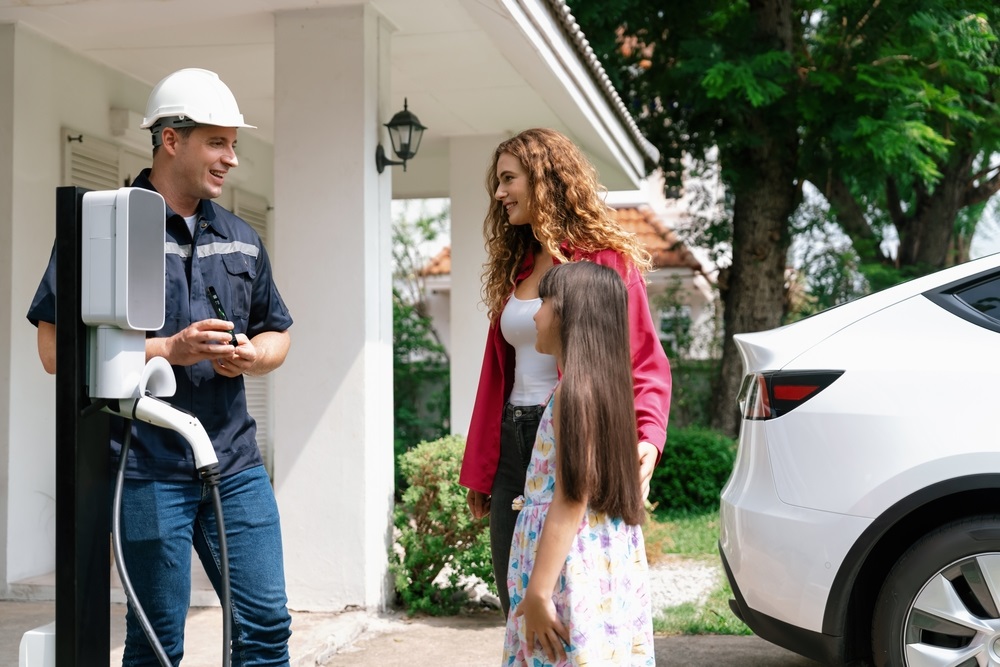Installing an EV charger at home is one of the best ways to embrace the future of transportation. With more drivers switching to electric vehicles, the convenience of at-home charging is increasingly in demand. However, one important question often comes up: Do you need a permit to install an EV charger? The short answer is that in most cases, yes, you do need a permit. This guide will explain why permits matter, what the process involves, and how working with Pelican Coast Electric’s expert electrical services can make your installation smooth and hassle-free.
Why You Might Need a Permit for EV Charger Installation
Permits are required for most electrical work, including EV charger installations, because of safety regulations. An EV charger draws substantial electrical power, which means your home’s electrical system must be equipped to handle the increased load. To ensure this is done safely and up to code, many local governments require permits and inspections.
Here are the key reasons permits are often mandatory:
1. Ensuring Safety and Code Compliance
EV chargers must comply with national and local electrical codes, including the National Electrical Code (NEC). Permits ensure that licensed electricians perform the work correctly to avoid hazards like electrical fires or circuit overloads.
2. Avoiding Legal Issues
Installing an EV charger without a permit can lead to fines or legal trouble. In the event of an inspection by local authorities, unpermitted work may require costly corrections or even removal of the charger.
3. Protecting Your Investment and Home Insurance
Homeowners’ insurance policies may not cover damages caused by unpermitted or unsafe electrical work. By obtaining the necessary permits and inspections, you protect yourself from potential liability and ensure your investment in an EV charger is secure.

What Is Involved in the Permitting Process?
Permitting processes vary depending on your local jurisdiction, but most regions follow a similar procedure. Here’s a general overview of what to expect:
1. Application Submission
First, you or your electrician must submit a permit application to the local building department. This may include details about the charger model, electrical upgrades, and wiring plans.
2. Approval and Inspection
Once your application is reviewed and approved, you can begin the installation process. After installation, an inspector will verify that the work meets safety standards and code requirements.
3. Permit Issuance and Documentation
Once the installation passes inspection, your permit will be finalized. It’s crucial to keep documentation of the permit and inspection results for future reference, particularly if you sell your home.
At Pelican Coast Electric, we handle the entire permitting process for you, saving you time and effort. Our experienced team works directly with local authorities to ensure all requirements are met quickly and efficiently.
Types of Permits You May Need for EV Charger Installation
Depending on your situation, you may need multiple permits. These can include:
1. Electrical Work Permit
This permit covers all wiring, electrical panel upgrades, and charger installation. It’s the most common permit required for EV charger projects.
2. Building Permit
If your installation involves structural changes, such as running conduit through walls or adding new exterior panels, a building permit may also be required.
3. Utility Approval
In some areas, your local utility company may need to be notified if your EV charger will significantly increase your home’s energy consumption.
Navigating these permits can be complex, but at Pelican Coast Electric, we make it simple. Our team knows the regulations and procedures inside and out, so you can focus on enjoying your EV.
How Electrical Panel Upgrades Affect Permits
One important factor to consider is whether your home’s electrical panel can support an EV charger. Many older homes were not designed for the electrical demands of modern EV charging stations, which can require anywhere from 30 to 80 amps of power.
If your panel needs an upgrade, additional permits may be required to install a higher-capacity service. Fortunately, Pelican Coast Electric can assess your panel, provide upgrade options, and take care of all necessary permits. This ensures your home is ready for high-power EV charging without risking overloads or electrical hazards.
Read More: Electric Vehicle Chargers: Installation, Types, and Benefits Explained
The Benefits of Professional Installation by Pelican Coast Electric
DIY installation might seem appealing, but it can lead to serious risks. Improper wiring, overloaded circuits, and failure to meet code requirements can create hazards. Instead, let Pelican Coast Electric take the reins. Here’s why our customers trust us:
1. Expertise and Licensing
Our electricians are fully licensed, trained, and experienced in EV charger installation. We understand the specific requirements for different charger brands and models.
2. Compliance Guaranteed
We handle permits, inspections, and code compliance, so you don’t have to worry about legal or safety issues.
3. Quality Workmanship
We take pride in delivering installations that are built to last. Our attention to detail ensures that your charger performs optimally from day one.
4. Customer-Centric Service
Your satisfaction is our priority. We offer personalized consultations, transparent pricing, and ongoing support to make your EV charger installation experience seamless.

Do I Need a Permit to Install a Level 2 EV Charger?
Yes, you typically need a permit to install a Level 2 EV charger. Since Level 2 chargers require a 240-volt connection, installing one often involves electrical work such as new wiring or panel upgrades. Local regulations mandate permits to ensure compliance with electrical codes and safety standards. This protects your home from hazards like circuit overloads and electrical fires.
Permits also help maintain your homeowners’ insurance coverage, as unpermitted work may void claims for electrical damage. Additionally, a licensed electrician can streamline the process, handling permits and inspections to ensure a safe, code-compliant installation without delays or legal risks.
Frequently Asked Questions
DO ALL EV CHARGER INSTALLATIONS REQUIRE A PERMIT?
Yes, in most areas, a permit is required for any installation involving electrical upgrades. Local regulations may vary, so it’s best to consult with your electrician or building department.
CAN I INSTALL AN EV CHARGER MYSELF?
It’s not recommended unless you are a licensed electrician. Improper installation can cause electrical hazards, void warranties, and violate local codes.
WHAT IF I SKIP THE PERMIT PROCESS?
Skipping permits can result in fines, safety risks, and voided insurance coverage. Unpermitted work may also need to be removed or corrected during future inspections.
HOW LONG DOES THE PERMITTING PROCESS TAKE?
Permit approval times vary, but working with experienced professionals like Pelican Coast Electric can expedite the process. We handle permits efficiently to minimize delays.
CAN PELICAN COAST ELECTRIC INSTALL COMMERCIAL EV CHARGERS?
Yes! We offer both residential and commercial EV charger installation services, tailored to meet your specific needs.
Start Your EV Charger Installation Today
Are you ready to enjoy the convenience of charging your electric vehicle at home? Don’t let the permitting process slow you down. At Pelican Coast Electric, we simplify the entire process for you. From panel upgrades to obtaining permits, we handle it all with professionalism and care.
Contact Pelican Coast Electric today to schedule a consultation and get started on your EV charger installation. Click here to Contact Us or give us a call. We’re ready to bring you the convenience of safe, code-compliant home charging.

